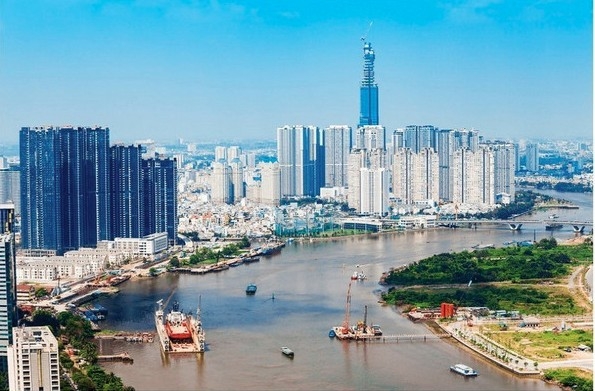Mexican media underscores Vietnam’s rising global profile
VOV.VN - Vietnam’s rising role on the international stage was reaffirmed by Prime Minister Pham Minh Chinh’s visit to Brazil on July 6-7 to attend the expanded BRICS Summit in Rio de Janeiro, where Vietnam participated as a partner country.

This was the assessment of Regeneración, the official publication of Mexico’s ruling National Regeneration Movement (Morena), in an article titled “Vietnam keeps moving forward,” which praised the country’s remarkable development in recent years.
In the article, author Pedro Gellert wrote that Vietnam is not only remembered by the international community for its resounding victories in national liberation and unification, but is also widely respected today for its impressive achievements in socio-economic development
After nearly four decades of pursuing the Doi Moi (Renewal) process since 1986, Vietnam has made major strides. In 2024, its GDP grew by 7.09%, placing it among the fastest-growing economies in the world. The country maintained macroeconomic stability, kept inflation below 4%, preserved key economic balances, and posted a trade surplus. By 2029, the Asian nation is projected to rank among the world’s 20 largest economies.
The article also emphasized that economic development only holds true meaning when it serves prosperity and social equity. Under its socialist orientation, Vietnam has made sustained efforts to improve people’s livelihoods, achieving remarkable progress in this area. Per capita income has reached US$4,711 per year, while the multidimensional poverty rate has dropped to just 1.93%, down from 60% in 1986.
According to the 2024 World Happiness Report, Vietnam ranked 54th out of 143 countries, an 11-place improvement from the previous year.
In education, the adult literacy rate stands at nearly 99%. Since 2014, lower secondary education has been made universal, and the number of students enrolled in universities and colleges has increased nearly twentyfold compared to the early years of Doi Moi. In healthcare, nationwide health insurance coverage reached 94.1% in 2024.
The article further noted that Vietnam has prioritized the development of science, technology, and innovation, while promoting a startup ecosystem, improving human resource quality, and advancing inclusive policies on ethnicity, religion, gender, children, and the elderly. National programs for child protection and care, gender equality, and women’s empowerment have also been key pillars of national policies.
It praised Vietnam’s ongoing efforts to improve living conditions for its 53 ethnic minority groups, particularly those in mountainous and remote areas. These include targeted support for cultural preservation, mother tongue education, infrastructure investment, concessional loans, vocational training, and free health insurance.
The article highlighted that the Voice of Vietnam (VOV) even operates a radio channel in 13 minority languages – an illustration of the country’s commitment to preserving cultural diversity within a unified nation.
Thanks to these achievements, Vietnam currently ranks 54th out of 166 countries in the Sustainable Development Goals (SDG) Index, demonstrating balanced progress across economic, social, and environmental dimensions.
In the author’s view, that the world is experiencing intense and uncertain geopolitical polarization, while developing nations are facing both new opportunities and growing challenges. Vietnam, however, continues to assert its path of independent and proactive development and promote deep international integration.
To succeed in this new era of development, General Secretary of the Communist Party of Vietnam To Lam has outlined four key strategic pillars for national advancement. While each pillar focuses on a distinct area, they are closely interconnected, reinforcing and complementing one another.
According to the article, Vietnam aims to surpass the global average in technological capability and innovation by 2030. In certain areas, the country is targeting international standards, with a particular goal of ranking among the top three in ASEAN and top five in Asia for technological capacity and digital transformation.
Moreover, Vietnam is accelerating legislative reforms to improve its institutional system across key sectors; identifying the private sector as a primary engine of the national economy; and pursuing a proactive, comprehensive, and multilateral integration policy. While deepening its global economic integration, Vietnam is also developing an independent, modern, green, and circular economy with competitiveness driven by science, technology, and innovation.
In addition to domestic policies, Mexican media especially hailed Vietnam’s foreign policy, underscoring its comprehensive, open, and inclusive approach to international integration. Vietnam’s commitment to multilateralism and cooperation is seen as a contribution to building a peaceful, progressive, and better world.
The author added that PM Pham Minh Chinh’s participation in the 2025 BRICS Summit not only underscores Vietnam’s growing prominence and emerging role on the global stage, but also provides an opportunity for the Asian nation to strengthen bilateral relations with BRICS member states and seek cooperation opportunities across a wide range of areas.
With its tremendous achievements, Vietnam is indeed moving forward with confidence and determination toward the future, the article concluded.



